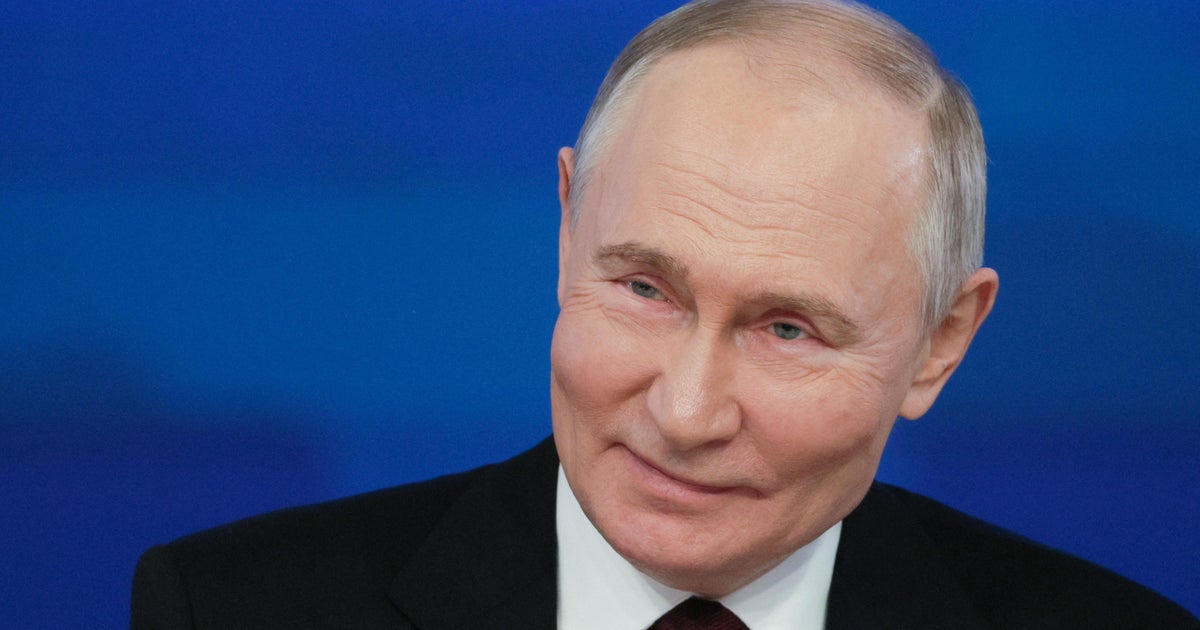Ukraine war prompts new efforts by Europe and U.K. to find and freeze Russian oligarchs' hidden money
London — European Union officials were to discuss new financial sanctions targeting Russia's billionaire oligarchs on Tuesday, according to the Reuters news agency. Russian-owned luxury yachts, jets, and other property have already been targeted by several Western nations, including the U.S, over Russia's invasion of Ukraine.
The U.K. has sanctioned a dozen Russian billionaires, and as CBS News correspondent Imtiaz Tyab reports, the British Parliament is now considering new laws that would make it harder for those oligarchs to spend their money in the country.
The British government says the Economic Crime Bill is aimed at stopping wealthy Russians from hiding and laundering their money in London, but critics say it's too little, too late.
London has long been a playground for the wildly rich, but Prime Minister Boris Johnson says the days of "dirty money" are over, and that "oligarchs in London will have nowhere to hide."
"We will continue working through our hit list of oligarchs, focusing on their houses, their yachts, and every aspect of their lives," vowed Britain's foreign secretary Liz Truss.
But that "hit list" doesn't include Britain's most famous oligarch. Roman Abramovich, the owner of London's storied Chelsea soccer club, is worth an estimated $12 billion, and he's known Putin for decades.
Last week, Abramovich put the club up for sale with a reported $2.5 billion price tag, promising to donate proceeds to victims of the war in Ukraine.
But most Oligarchs store their cash in London in the property market.
"The U.K. has laundered the world's dirty money for decades," Rachel Davies, of the anti-corruption watchdog group Transparency International, told CBS News. "We've found 1.5 billion pounds worth of U.K. property that's owned by Russians who are either connected to corruption or have close ties to the Kremlin. Now that is almost certainly the tip of the iceberg."
Witanhurst Mansion is Britain's second largest home — second only to Buckingham Palace — valued at over $400 million. It has been linked to Russian billionaire Andrey Guryev. A New Yorker Magazine investigation found that it was purchased by a shell company in the British Virgin Islands.
Guryev was in a meeting with Putin just days after Russia invaded Ukraine.
Mikhail Fridman, who owns another multi-million dollar London mansion, has already been sanctioned. But the Russian oligarch says sanctions won't stop Putin.
"Imposing sanction against us here just creates enormous pressure for us personally, but we do not have any impact for political decision — at all," he said.
The Economic Crime Bill is an effort to close some of the loopholes, like the use of shell companies as a way to launder cash. It is designed to put more pressure on those with close ties to Putin, and the people who make it easy for them in the U.K.
"Here in London, we have an army of professionals, lawyers, bankers, accountants, estate agents… many of them are acting with integrity, but unfortunately a lot of them are either willfully engaging with corrupt individuals or turning a blind eye while they help them launder their money," said Davies of Transparency International.
As the war in Ukraine rages on, the battle to find and freeze Russian money is only getting started. Many in Britain fear that even with new laws, oligarchs will find other ways to shield their cash from scrutiny.





